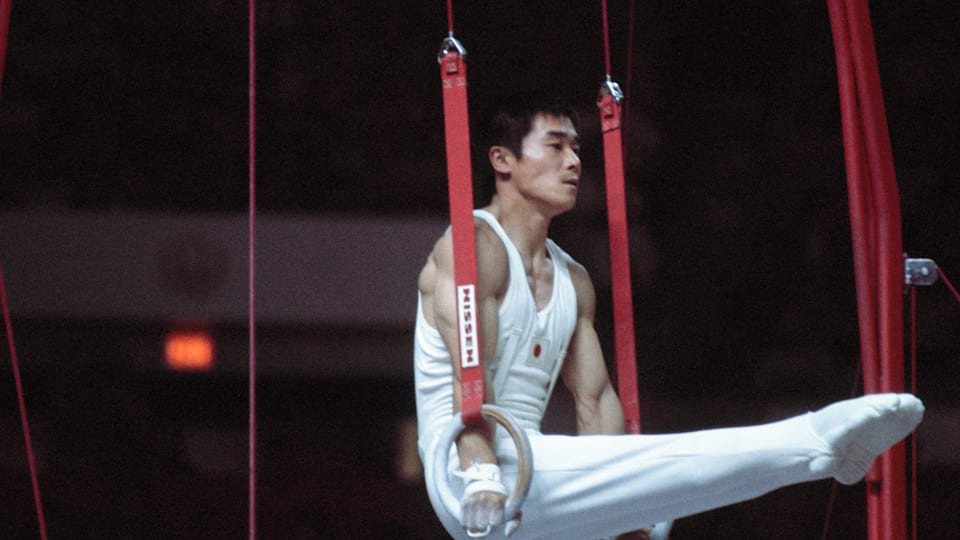FUJIMOTO Shun: The price of gold
The Olympic Games are full of champions, records and stories, but they’re also an incredible encyclopaedia of strange, funny, emotional and sad moments. We’ll dig some out every week to put a smile on your face or a tear in your eye. This week: The story of the Japanese gymnast who hid serious injury in order to help his team win Olympic gold.

The background
What's the biggest secret you've ever kept?
Coming into the Olympic Games Montreal 1976, Japan were the dominant force in men's gymnastics, having won the gold all-around team competition at the previous four Olympics.
But while their sporting history made them favourites heading into the Games, their dynasty was under threat from a resurgent Soviet Union team that boasted among their ranks the men's all-around champion Nikolai Andrianov - a legend of the sport who ended his career with more Olympic gymnastics medals than any male athlete in history.
Even so, expectations were high as Fujimoto and his Japanese compatriots began the competition.
“We never thought of losing in Montreal,” Fujimoto said years later in an interview with the Olympic Show. “We wanted to preserve Japanese gymnastic history, which was kept for a long time. So it wasn’t pressure, but rather we were eager to keep our past alive.”
But the price of maintaining past glories would prove to be a high one for the Japanese gymnast.
The final
Soon after Fujimoto stepped onto the mat for the preliminary floor exercise disaster struck.
Landing awkwardly during a tumbling run, the Japanese gymnast shattered his kneecap - an excruciatingly painful injury that looked to have dashed his (and perhaps Japan’s) Olympic dreams.
But Fujimoto was not prepared to let the glory of his nation be sullied by mere pain.
With most of the programme yet to take place, the heroic gymnast decided against telling his teammates about his injury and continued on to the pommel horse and ring exercises - two events where clean dismounts are vital and where a painful impact to his broken knee could not be avoided.
“I felt air inside my knee,” the brave athlete explained. “But I tried not to show that I was injured, because I did not want the judges or anyone to think that I was hurt.”
Somehow, Fujimoto completed the pommel horse routine, scoring an impressive 9.5.
But the hardest moment was yet to come.
With his team trailing the Soviet Union by little more than a point, Fujimoto stepped up to the rings, where in order to play his part in Japan’s victory, he would need to land a dismount from 2.4m above the ground.
Beyond the comprehension of most - including the doctors who treated him after the event - Fujimoto delivered a spellbinding display that ended with a judges score of 9.7.
Not only had he defeated pain in pursuit of gold, he had acquired a new personal best in the process - all while harbouring the most painful of secrets.
The outcome
As Fujimoto limped from the rings back to his seat, it became impossible to maintain his heroic charade.
The impact from his latest dismount had aggravated his knee injury further and doctors ordered him to retire from the competition.
Fujimoto's performances that day proved key to Japan's quest for gold, as they secured the top spot on the podium for the fifth time in a row. But when asked years later whether he would do the same again, Fujimoto's reply was simple and resolute.
"No, I would not."
The 1976 Games would prove to be the end of Japan's dominant gold medal-winning artistic gymnastics run, as they declined to send any gymnasts to the Moscow 1980 Games. They would have to wait until Athens 2004 to win the all-around team event again.
But with victory at Rio 2016, the team will once again be among the favourites when the Tokyo 2020 artistic gymnastics competition begins on 24 July 2021 at the Ariake Gymnastics Centre.
